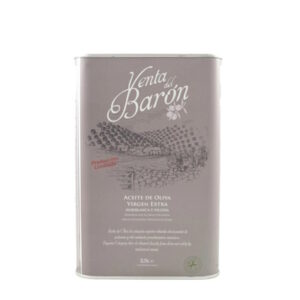High polyphenol olive oils
Oleuropein, hydroxytyrosol, and their derivativess are polyphenolic compounds that are abundant in olive oil. They are powerful antioxidants displaying anticancer, anti-angiogenic and anti-inflammatory properties.
Buy extra virgin olive oil, rather than light, pomace, or refined olive oil. Virgin oils are richer in polyphenols than refined olive oils, but virgin alone isn’t a guarantee of high levels of polyphenols. Look also for oils that are cold pressed since heat destroys polyphenols.
The beneficial effects of polyphenols on the human body have been evaluated in a number of scientific research projects. Bioactive polyphenols are natural compounds of various chemical structures. They are to be found mostly in fruits, vegetables, nuts, seeds, roots, bark and leaves of different plants, as well as tea, coffee, and red wine. Those compounds are believed to reduce morbidity and/or slow down the development of cardiovascular and neurodegenerative diseases as well as cancer.
The biological activity of polyphenols is strongly related to their antioxidant properties. They tend to reduce the pool of reactive oxygen species as well as to neutralize potentially carcinogenic metabolites. A broad spectrum of health-promoting properties of plant polyphenols comprises antioxidant, anti-inflammatory, anti-allergic, anti-atherogenic, anti-thrombotic, and anti-mutagenic effects.
Scientific studies present the ability of polyphenols to modulate the human immune system by affecting the proliferation of white blood cells, and also the production of cytokines or other factors that participate in the immunological defense.
Polyphenol-rich olive oil
There are more than 8000 different polyphenolic structures known. Only today we understand the reasons of their beneficial impact on human health. Actually, some vitamins as well as polyphenols present powerful antioxidant and anti-inflammatory properties that make them natural and efficient anticancer agents. Those beneficial effects on human health and metabolism explain the popularity of olive oil in many different diets, and specifically the Mediterranean cuisine.
The chemical composition of olive oil varies depending on the extraction technology applied, crushing olives and then separating the oil from the fruit pulp under elevated pressure. The concentration of polyphenols depends on these technological processes. As a matter of fact, it depends on the agronomic factors, the ripeness of olives, as well as extraction technology, along with storage or packaging processes.
Extra virgin olive oil by its low yield is more expensive than other types of olive oil, but it contains the highest level of polyphenols. Also, unfiltered olive oil preserves additional polyphenols.
Conventional medicine and phytotherapy both use olive leaf extracts to treat and prevent arterial hypertension or as diuretics and antiseptics. Many studies showed its ability to lower the blood pressure in animals as well as to increase blood flow through the coronary arteries, slow down the heart rate and normalize intestinal muscle contractions.
- Hydroxytyrosol: belongs to polyphenols, which are abundant in olives and consequently in virgin olive oil, with unique properties attributed to a potential risk reduction for developing type 2 diabetes mellitus. Also, the hydroxytyrosol-rich extracts that are available from different plants induce inhibition of breast cancer cell growth.
- Oleuropein: has been found to be effective against various strains of bacteria, viruses, fungi and also molds or even parasites. Therefore, phenolic compounds (oleuropein, protocatechuic acid) of virgin olive oil have also been shown to inhibit LDL oxidation.
Anticancer properties
Researchers reported anticancer properties of olive leaf extract in an animal skin cancer model, starting with early apoptosis and completing by the following necrosis. Polyphenols from olive leaf extract showed synergistic effects as combined with standard chemotherapeutic agents.
Studies on polyphenols of olive oil also confirmed their anticancer potential on proliferation and cell death of number of cancers (osteosarcoma, neuroblastoma, breast cancer). In fact, epidemiological studies show that people of the Mediterranean region have a lower incidence of several cancers when compared to other populations. Olive oil can also protect against carcinogenic agents that are abundant in the environment and food, alleviating oxidative stress phenomena.
It should be emphasized that the unique properties of olive oil polyphenols have been evaluated mostly based on in vitro models, and more in vivo studies and well-designed clinical trials are still necessary. Nonetheless, the preliminary results seem to be pretty encouraging in terms of prevention and treatment of cancer or cardiovascular and neurodegenerative diseases.
High-Phenolic EVOO
High-phenolic extra virgin olive oil may help to delay the progression of one of the most common types of cancers. A small study in Greece found olive oil with high concentrations of oleocanthal and oleacein improved the prognosis of a sample of patients with early-stage chronic lymphocytic leukemia. Actually, these cases makes up about 25 percent of global leukemia cases.
Leukemia is a type of blood cancer that begins in the bone marrow producing too many white blood cells. In fact, in a healthy person, white blood cells help the body fight bacterial and viral infections. However, in leukemia patients, those white blood cells build up, interfere with the production of red blood cells.
For the study, the researchers divided 20 patients from Greece at the beginning stages of the disease into two groups. The first group consumed 40 milliliters of monovarietal extra virgin olive oil daily for three months. This EVOO included 25 milligrams of oleocanthal and oleacein. The second group consumed extra virgin olive oil high in polyphenols, but with low concentrations of oleocanthal and oleacein.
By the end of the study, the researchers observed that white blood cell production had slowed down in the patients consuming high-oleocanthal, high-oleacein olive oil and, in some cases, even reversed. Therefore, consuming high-oleocanthal, high-oleacein extra virgin olive oil could become a dietary standard for leukemia patients
Back in 2015, an American woman with leukemia asked her doctor whether she should add extra virgin olive oil to her diet. Six months later she called crying, saying that it’s a miracle because the white blood cell count has gone down. The research team decided then to investigate the role of oleocanthal and oleacein because previous studies found leukemia cells to be particularly sensitive to both compounds.
Consuming high polyphenol olive oils
However, there was no evidence that these compounds would have the same effects on cells if consumed naturally and not introduced in laboratory conditions. Actually, through dietary consumption, the phenolic compounds of olive oil must follow a very complicated pathway from our mouth to our stomach. The absorption in the intestine, transportation in the blood and circulation all around the body are not direct.
Oleocanthal and oleacein reduce the production of white blood cells in leukemic cells by promoting apoptosis. This is in fact an organized mechanism of cellular death that can kill cancer cells. The two compounds did this by decreasing the survivin protein, which inhibits apoptosis.
Also, benefits in the glucose metabolism have been observed, which is very important because blood sugar is dysregulated in all leukemia patients. While these preliminary results are encouraging, further studies are needed New research would be to see if consuming high-oleocanthal, high-oleacein extra virgin olive oil would continue to lower white blood cell counts over a more extended period.
Oleocanthal-based olive oil against aggressive type of breast cancer
Oleocanthal, a phenolic compound found in EVOO, may be effective as part of targeted therapy for triple-negative breast cancer (TNBC) patients. These results according to a new study from researchers at the University of Louisiana-Monroe.
This highly aggressive form of breast cancer has a high risk of recurrence, making the disease difficult to control. Actually, the American Cancer Society estimates more than 280,000 new cases of invasive breast cancer will be diagnosed in the United States in 2021. The outcome of this cases is more than 44,000 deaths (16% of mortality).
The lead author of the study believes that oleocanthal may hold the key to reversing the disease’s unfavorable prognosis In fact, epidemiological studies with Mediterranean populations have a lower incidence of colon and breast cancers than other European or North American populations. The presence of oleocanthal in extra virgin olive oil may be the reason why.
The advantages of the long-term use of oleocanthal by TNBC patients include its cost-effectiveness due to its sustained plant supply. Also, a high level of safety, which is based on the long human history of extra virgin olive oil consumption.
At Olive Oil Extra, we always recommend consulting any health concerns with your doctor first.




